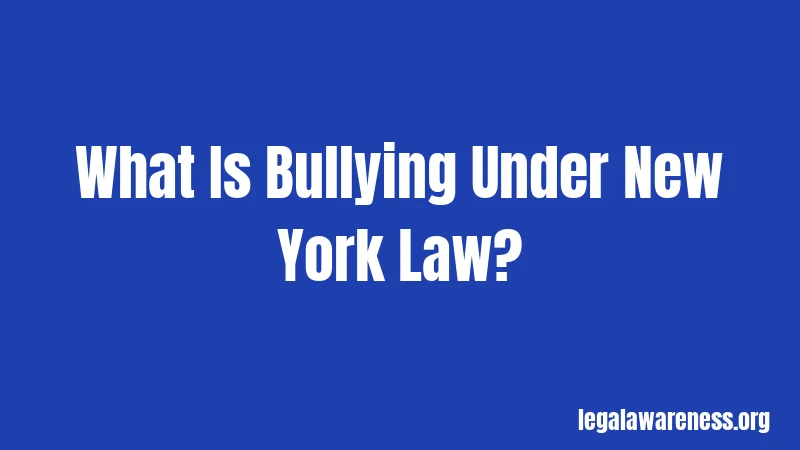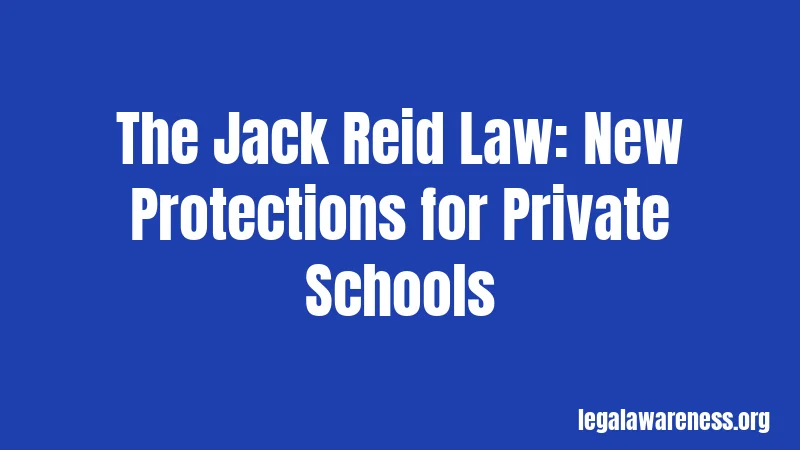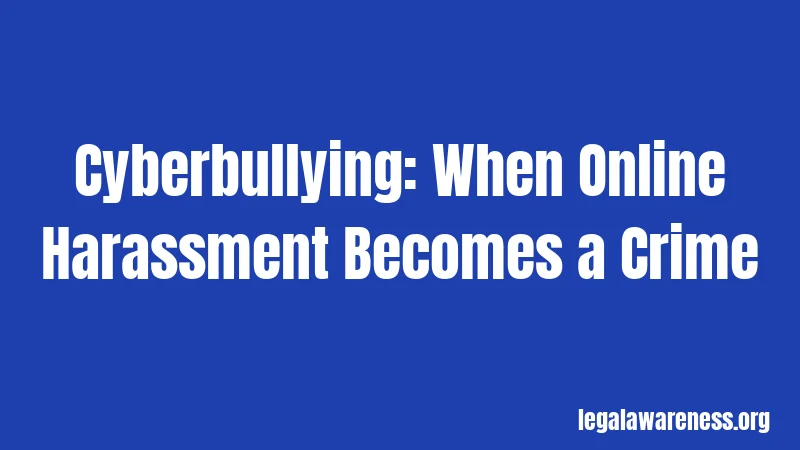Bullying Laws in New York (2026): Real Protections, Real Consequences
Most parents don’t realize how serious New York takes bullying. Like, seriously serious. The state has some of the strongest anti-bullying laws in the country, and they just got stronger in 2024 with new protections for private school students.
Here’s the deal. If your kid is being bullied in school, or if your teen is accused of bullying someone else, you need to know exactly what the law says. Let’s break it down step by step.
What Is Bullying Under New York Law?

Bullying is unwanted aggressive behavior that involves a real or perceived power imbalance. That’s the technical definition. But what does it actually mean?
Think of it like this. It’s when someone repeatedly targets another person to intimidate, hurt, or embarrass them. The key word here is “repeatedly.” One argument between students doesn’t usually count as bullying. But a pattern of harassment? That’s when the law kicks in.
New York law covers all types of bullying. Physical bullying like hitting or pushing. Verbal bullying like name-calling or threats. Social bullying like spreading rumors or excluding someone on purpose. And yes, cyberbullying counts too.
Wondering if this applies to you? If it happens on school property, on a school bus, at a school event, or even online when it affects the school environment, New York law covers it.
The Dignity for All Students Act (DASA)
Okay, this one’s important. New York’s main anti-bullying law is called the Dignity for All Students Act, or DASA for short. It was signed into law back in 2010 and went into effect in 2012. But it’s been updated several times since then.
DASA requires public schools to create an environment free from discrimination, intimidation, taunting, harassment, and bullying. The law is pretty specific about what schools must do.
Every school needs a DASA coordinator. This is a specific person, usually a teacher or administrator, who handles bullying reports. Schools must train all employees every year on how to recognize and stop bullying. And they have to keep detailed records of every incident.
Here’s what many people don’t realize. DASA protects students based on specific characteristics. This includes race, color, weight, national origin, ethnic group, religion, religious practice, disability, sexual orientation, gender identity, and sex.
So if a student is bullied because of any of these characteristics, that’s considered harassment under DASA. And schools must take it extra seriously.
The Jack Reid Law: New Protections for Private Schools

Hold on, this part is important. In 2024, Governor Hochul signed a game-changing new law called the Jack Reid Law. This extended many of DASA’s protections to private schools across New York.
Before this law, private schools weren’t required to have anti-bullying policies. They could choose to adopt them, but didn’t have to. Pretty shocking, right?
The Jack Reid Law changed that. Now private schools must adopt clear anti-bullying policies just like public schools. They need to establish reporting procedures. They have to investigate complaints. And school employees must report incidents of bullying within specific time frames.
This law is named after Jack Reid, a teenager who tragically took his own life after experiencing bullying at his private school. His parents turned their grief into advocacy. Now all 420,000 private school students in New York have legal protections against bullying.
How Schools Must Handle Bullying Reports
Let’s talk about what happens when someone reports bullying. The process is actually pretty straightforward.
When a teacher or staff member witnesses bullying or receives a report, they must act fast. They have to notify the principal orally within one school day. Then they must file a written report within two school days.
The school’s DASA coordinator investigates the complaint. They interview witnesses. They review any evidence like text messages or social media posts. They talk to both the accused student and the victim.
The investigation must be completed within a reasonable timeframe. Most schools aim for two weeks. Once the investigation is done, the coordinator determines whether bullying actually occurred.
If bullying is verified, the school must take action. This could include counseling for both students. Separating the students in classes or during lunch. Monitoring their interactions. Or disciplinary consequences for the bully.
Sound complicated? It’s actually designed to be protective. Schools can’t just ignore bullying complaints anymore.
Cyberbullying: When Online Harassment Becomes a Crime

Here’s where things get serious. New York doesn’t have a specific “cyberbullying” crime. But cyberbullying can absolutely lead to criminal charges under harassment and stalking laws.
Cyberbullying is bullying that happens through electronic communications. Text messages, social media posts, emails, instant messages. If someone uses technology to harass, threaten, embarrass, or target another person, that’s cyberbullying.
Schools must address cyberbullying that affects the school environment, even if it happens off campus. But when cyberbullying crosses certain lines, it becomes a criminal matter.
If the cyberbullying seriously annoys someone but doesn’t make them fear for their safety, it’s harassment in the second degree. This is a violation, punishable by a fine of up to $500.
But wait, it gets more serious. If the cyberbullying makes someone reasonably fear for their safety, it’s harassment in the first degree. That’s a Class B misdemeanor. You could face up to 90 days in jail and a $500 fine.
If someone uses electronic communication to threaten harm to another person or their family, that’s harassment in the second degree again, but this time it’s a Class A misdemeanor. That means up to 364 days in jail and a $1,000 fine.
Honestly, most people don’t realize how quickly online bullying can turn into criminal charges.
Stalking Charges for Repeated Cyberbullying
Not sure what counts as stalking? Let me break it down. Stalking involves persistently following or unwantedly pursuing someone in a way that makes them afraid.
When cyberbullying involves repeated, unwanted electronic contact that makes someone fear for their safety, prosecutors can charge it as stalking. And stalking penalties are no joke.
Fourth-degree stalking is a Class B misdemeanor. Up to 90 days in jail and fines.
Third-degree stalking happens when it’s a repeat offense or when the conduct makes someone fear for their physical safety. This is a Class A misdemeanor with up to 364 days in jail.
Second-degree stalking is a Class E felony. This applies when someone 21 or older bullies a victim younger than 14, or when the bully threatens to use a weapon. You’re looking at up to four years in prison.
First-degree stalking is a Class D felony. This happens when the defendant intentionally or recklessly injures the victim. The penalties? Even more severe.
Yep, that’s all you need to know about the criminal side. But there’s more to the story.
What Schools Must Do Under the Law
New York requires schools to take specific actions to prevent and address bullying. These aren’t suggestions. They’re legal requirements.
Schools must adopt a written code of conduct that includes anti-bullying policies. This code must be given to all students, parents, and staff at least once a year.
Every school needs strategies to prevent harassment, bullying, and discrimination. This includes teaching students about respect, tolerance, and dignity. Many schools include anti-bullying programs in their character education curriculum.
Schools must provide training to all employees. Not just teachers, but bus drivers, cafeteria workers, coaches, everyone. The training covers how to recognize bullying, how to intervene, and how to report it.
Here’s something interesting. Schools must also create ways for students to report bullying anonymously. This could be a suggestion box, a hotline, or an online form. The goal is to make students feel safe reporting without fear of retaliation.
And retaliation is explicitly forbidden. If a student reports bullying and then gets targeted because of it, that’s a separate violation. Schools must protect students who speak up.
Reporting Requirements for Schools
Schools can’t just handle bullying quietly anymore. New York requires detailed reporting of all bullying incidents.
Every material incident of harassment, bullying, or discrimination must be documented. Schools file these reports with the New York State Education Department at the end of each school year.
The state uses this data to track bullying trends. They identify which schools have serious problems. They determine where resources are needed. And they hold schools accountable for maintaining safe environments.
Parents have a right to know about this data too. Schools must make their bullying policies and incident reports available to parents upon request.
When Police Get Involved
Most people assume bullying is just a school issue. But that’s not always true. Sometimes law enforcement gets involved.
Schools must notify police when harassment, bullying, or discrimination constitutes criminal conduct. This includes physical assaults, threats of violence, stalking, or serious harassment.
The principal or superintendent decides when an incident rises to the level of criminal conduct. But they’re required to err on the side of caution. Better to report something that turns out not to be criminal than to ignore something that is.
Once police are involved, the situation moves beyond school discipline. Criminal charges could be filed. The student could go to court. Juvenile or adult criminal penalties could apply.
Trust me, this works. When bullying becomes criminal, the consequences change dramatically.
Penalties and Consequences for Bullying
Let’s talk about what actually happens when a student is caught bullying. The consequences depend on several factors.
For school-based consequences, students might face detention, in-school suspension, out-of-school suspension, or even expulsion for severe or repeated bullying. Many schools also require counseling or participation in anti-bullying programs.
For criminal consequences, the penalties vary based on the specific charges. Harassment violations can result in fines up to $500. Misdemeanor harassment can mean up to a year in jail. Felony stalking can lead to years in prison.
But wait, there’s more to know. Students also face civil liability. Victims of bullying can sue bullies and their parents for damages. This could include compensation for emotional distress, therapy costs, or other harm caused by the bullying.
Schools can be sued too if they fail to properly address bullying. If a school knew about bullying and didn’t take reasonable steps to stop it, the victim’s family might have a legal claim against the school district.
Special Protections for Vulnerable Students
New York law recognizes that some students face higher risks of bullying. The law includes extra protections for students bullied based on protected characteristics.
Students who are targeted because of their race, religion, disability, sexual orientation, gender identity, or other protected traits receive heightened protection. Schools must treat these incidents as discrimination under civil rights laws.
Students with disabilities get additional protections under federal laws too. If bullying prevents a disabled student from accessing their education, schools must take immediate action. This might include updating the student’s IEP or 504 plan.
LGBTQ+ students are especially vulnerable to bullying. New York schools must create safe, affirming environments for these students. The state provides specific guidance on supporting transgender and gender-expansive students.
Honestly, this is the part most people miss. But it’s crucial for parents of kids in these groups to understand.
Proposed Laws: What’s Coming Next?
New York keeps strengthening its anti-bullying protections. Several bills are currently being considered by the state legislature.
One proposal would make cyberbullying of a minor an unclassified misdemeanor. This would create a specific crime for repeated cyberbullying, with penalties of up to one year in jail and $1,000 in fines.
Another bill, called Jacobe’s Law, would require schools to notify parents when their child is involved in a verified bullying incident. Right now, DASA doesn’t specifically require parent notification. This law would change that.
There’s also proposed legislation around workplace bullying. While this doesn’t affect students directly, it shows how seriously New York is taking all forms of bullying and harassment.
Keep an eye on these developments. Anti-bullying laws in New York continue to evolve.
How to Report Bullying in New York Schools
If your child is being bullied, here’s exactly what you should do. Start by documenting everything. Keep screenshots of text messages or social media posts. Write down dates, times, and details of incidents. Save any evidence.
Next, report the bullying to the school. You can tell any teacher, administrator, or staff member. But it’s best to go directly to the school’s DASA coordinator. Every school must have one and must tell parents who that person is.
Make your report in writing if possible. Email works. A written letter works. You want a paper trail showing that you reported the problem and when.
If the school doesn’t respond appropriately, escalate. Contact the superintendent. File a complaint with the New York State Education Department. In serious cases, you might need to contact police or consult an attorney.
Don’t worry, we’ll break down step by step what happens next. Schools are legally required to investigate and respond to your complaint. They can’t ignore it.
Your Rights as a Parent or Student
You have specific legal rights under New York’s anti-bullying laws. You’re not alone, this confuses a lot of people. So let me make it crystal clear.
Students have the right to attend school in a safe, harassment-free environment. They have the right to report bullying without fear of retaliation. They have the right to have their reports investigated and addressed.
Parents have the right to know their school’s anti-bullying policies. They have the right to report bullying on behalf of their child. They have the right to be informed about the school’s response to bullying complaints.
Both students and parents have the right to appeal if they believe the school didn’t properly address bullying. This could mean going to the superintendent, the school board, or the state education department.
If your rights are violated, you might have grounds for legal action. Many families have successfully sued schools that failed to protect students from bullying.
Resources for Victims and Families
If you’re dealing with bullying, several resources can help. The New York State Education Department has a dedicated email for DASA questions: [email protected]. Their phone number is 518-486-6090.
StopBullying.gov provides information on federal protections and general anti-bullying resources. The site includes tips for students, parents, and educators.
Many local schools and districts offer counseling services for both victims and bullies. Mental health support is crucial for students affected by bullying.
Legal aid organizations throughout New York can provide free or low-cost legal help if you need to take action against a school district. Some private attorneys specialize in education law and bullying cases.
Crisis hotlines are available 24/7 if your child is in immediate danger or experiencing a mental health crisis due to bullying. The National Suicide Prevention Lifeline is 988.
Final Thoughts
New York’s anti-bullying laws are comprehensive and constantly improving. The Dignity for All Students Act protects public school students. The Jack Reid Law now protects private school students too.
Schools have clear legal obligations to prevent, report, investigate, and address bullying. When they fail, there are consequences. When bullying becomes criminal, law enforcement gets involved.
The most important thing? Don’t stay silent. If your child is being bullied, report it. Document it. Follow up. You have the law on your side.
And if your child is accused of bullying, take it seriously. Get help immediately. Understand the potential consequences, both in school and potentially in court.
Now you know the basics. Stay informed, stay safe, and when in doubt, look it up or ask a lawyer.
Frequently Asked Questions
Is bullying illegal in New York? Bullying itself isn’t always a crime, but it’s prohibited in all schools under the Dignity for All Students Act. Severe bullying that involves harassment, threats, or stalking can lead to criminal charges.
What is the Dignity for All Students Act? DASA is New York’s main anti-bullying law for public schools. It requires schools to prevent and address discrimination, harassment, and bullying. It protects students based on race, color, weight, religion, sexual orientation, gender identity, and other characteristics.
Does DASA apply to private schools now? Yes! The Jack Reid Law, signed in 2024, extended anti-bullying protections to private schools. All private schools in New York must now adopt anti-bullying policies and reporting procedures.
Can you go to jail for cyberbullying in New York? Yes. While there’s no specific cyberbullying crime, cyberbullying can be prosecuted as harassment or stalking. Depending on the severity, you could face up to a year in jail for misdemeanors or up to four years for felonies.
What should I do if my child is being bullied? Document all incidents with dates and details. Report it immediately to the school’s DASA coordinator or any staff member. Follow up in writing. If the school doesn’t respond appropriately, contact the superintendent or the New York State Education Department.
How long do schools have to investigate bullying? Schools should complete investigations within a reasonable timeframe, typically within two weeks. Staff must make oral reports within one school day and written reports within two school days of witnessing or receiving a bullying report.
Can schools be sued for not stopping bullying? Yes. If a school knew about bullying and failed to take reasonable action to stop it, the school district could face a lawsuit. Families have successfully sued schools for failing to protect students under their care.
What are the penalties for harassment in New York? Harassment in the second degree (violation) can result in fines up to $500. Harassment in the first degree (Class B misdemeanor) can mean up to 90 days in jail and fines. More serious harassment charges carry heavier penalties.
References
- New York State Education Department – The Dignity for All Students Act (DASA): https://www.nysed.gov/student-support-services/dignity-all-students-act
- StopBullying.gov – New York Anti-Bullying Laws & Policies: https://www.stopbullying.gov/resources/laws/new-york
- Governor Hochul Signs Legislation to Combat Bullying in Schools (Jack Reid Law): https://www.governor.ny.gov/news/governor-hochul-signs-legislation-combat-bullying-schools-across-state
- New York State Senate Bill 2025-S4544 (Jack Reid Law): https://www.nysenate.gov/legislation/bills/2025/S4544
- Cyberbullying Research Center – Bullying Laws in New York: https://cyberbullying.org/bullying-laws/new-york
